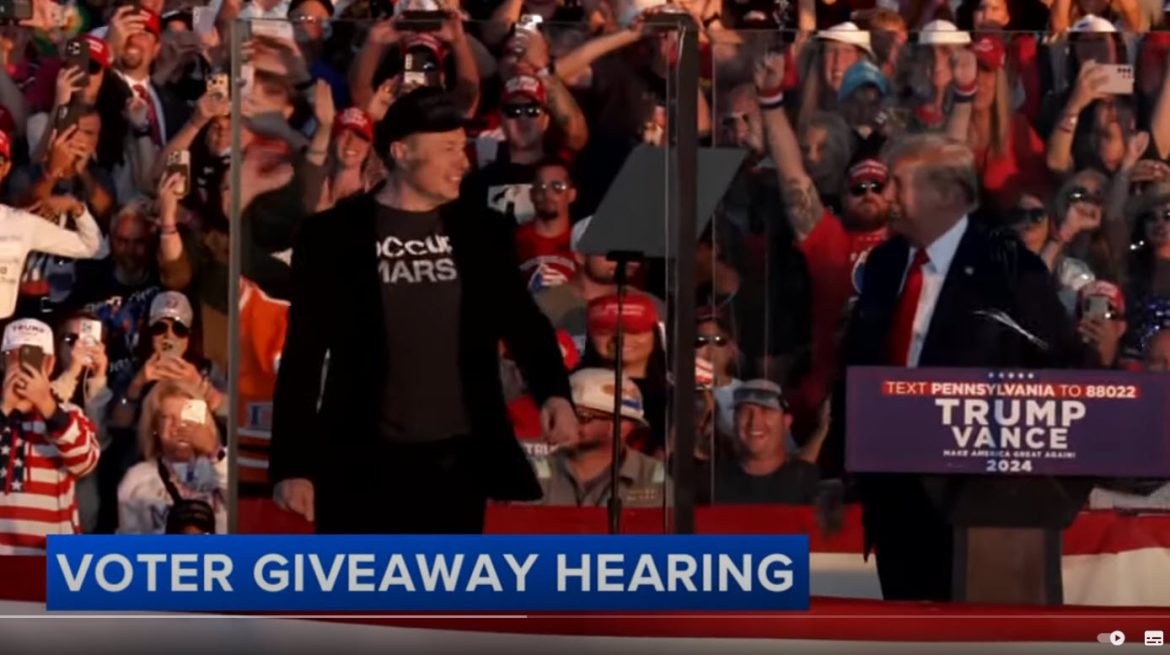A Pennsylvania judge has decided to pause a high-profile lawsuit filed against Elon Musk, pending a federal court’s decision on whether to take up the case. The lawsuit, brought by the Philadelphia District Attorney’s Office, challenges the legality of Musk’s $1 million-a-day giveaway campaign aimed at swing state voters. Musk’s political action committee (PAC) recently announced it would award $1 million daily to a randomly selected registered voter in swing states who signs a petition pledging to support free speech and the Second Amendment. Critics, including the Philadelphia DA’s Office, claim the giveaways amount to an “illegal lottery,” sparking a heated legal battle.
The pause comes as Musk’s legal team pushes to move the case from state to federal jurisdiction, where the case’s implications for free speech and electoral influence could be examined more broadly. In Pennsylvania’s state court, the lawsuit accuses Musk’s PAC of bypassing lottery and election laws by incentivizing voter participation with large cash prizes. The Philadelphia DA’s Office contends the cash draws contravene state laws prohibiting lotteries that offer prizes contingent on conduct, such as signing a petition.
While Musk himself did not attend the recent hearing in Philadelphia, his absence did not detract from the attention surrounding the case. Musk’s controversial campaign has sparked extensive debate on social media, with supporters arguing that the initiative promotes civic engagement and underscores essential American freedoms. However, opponents contend the initiative unduly influences voter behavior in swing states, crossing a line between advocacy and coercion.
Under the paused lawsuit, Musk’s PAC argues that the initiative should be seen as a free speech exercise, given that the pledge ties closely to political ideals Musk has championed, including freedom of expression and gun rights. The PAC asserts that the campaign encourages discourse rather than distorting the democratic process, an argument Musk’s legal team believes the federal court will view more favorably.
Despite the delay, Musk’s PAC intends to continue daily giveaways as planned, pending further legal rulings. With swing states expected to play a pivotal role in the upcoming election, the campaign is seen as a bold move to rally voters who align with Musk’s views on individual liberties.
As Musk’s lawyers await the federal court’s decision, the case brings questions about political influence, voter incentives, and free speech boundaries to the forefront of national discussions. Legal experts suggest the lawsuit’s outcome could establish a precedent on the legality of incentivized voter pledges in elections, with potential implications for future political initiatives.



